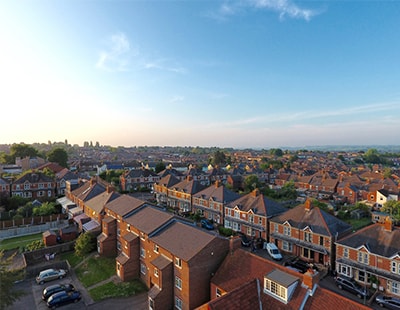
House prices showed an unexpected pre-Christmas boost last last month but worries about Brexit remain foremost for buyers according to the Nationwide Building Society.
Its latest figures show that annual house price inflation rose from 1.6 per cent to 1.9 per cent in November, with the Nationwide suggesting that if a Brexit deal is voted through it could lift the property market.
“If the uncertainty lifts in the months ahead and employment continues to rise, there is scope for activity to pick-up through next year” says Nationwide’s chief economist Robert Gardner.
House prices rose 0.3 per cent in November alone although this was attributed by analysts to seasonal adjustment of the index - the average price actually dropped from October’s £214,534 to £214,044.
“Looking forward, much will depend on how broader economic conditions evolve. In the near term, the squeeze on household budgets and the uncertain economic outlook is likely to continue to dampen demand, even though borrowing costs remain low and the unemployment rate is near 40-year lows” says Gardner.
“The squeeze on household incomes is already moderating and policymakers have signalled that, if the economy performs as they expect, interest rates are only expected to rise at a modest pace and to a limited extent in the years ahead.”
Jeremy Leaf, the London agent who is also the former Royal Institution of Chartered Surveyors’ residential chairman, says the figures are more encouraging than expected but cautioned that buyers are waiting until Brexit clouds clear in the New Year.
“[The figures] come on the back of encouraging mortgage approval and transaction figures … which show, once again, that realistic buyers and sellers are taking advantage of very low mortgage rates and shrugging off Brexit concerns.
“These seem to be weighing more heavily on buyers in London and the South East, as the old north/south divide is turned on its head with the property market in the capital and its environs now dragging down the rest of the country.
“We don’t expect any major changes in the period leading up to Christmas unless our departure from the EU is finalised more clearly one way or the other but there is no doubt we are finding there is considerable pent-up demand awaiting more settled times.”
Mark Weedon, who heads the research team at investment platform Property Partner, says of the figures: “UK residential has remained resilient in the face of unprecedented levels of market uncertainty in the wake of Brexit. House prices have steadily grown in the last 12 months and in that time not shown any periods of significant volatility. By comparison, the stock market has experienced significant peaks and troughs as market turmoil becomes the new norm.
“UK property in comparison with stock market investments is looking fairly attractive right now. As a general rule UK residential is a long-term investment, less linked to short-term sentiment. London remains the thorn in the foot, with transactions down significantly on previous years. If Brexit remains an uncertainty, we’ll likely see London property market woes heighten.”














.png)


.png)




Join the conversation
Be the first to comment (please use the comment box below)
Please login to comment